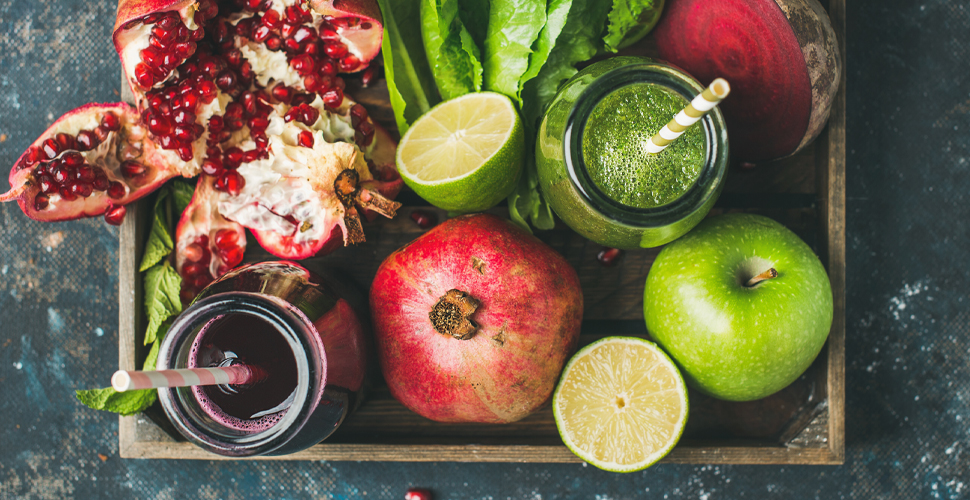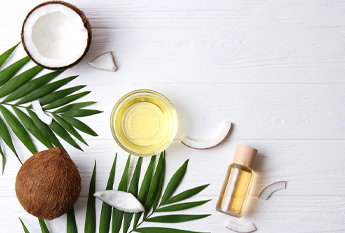Vitamins 101: What Are the Benefits of Vitamins?
Vitamins are organic compounds that benefit the functioning of our body in various ways. The human body sometimes does not produce enough of the vitamins that we need. That is when vitamins should be introduced into the body through nutritional supplements.
Each living thing has different ways to meet their nutritional requirements. For example, humans need to get their vitamin C from food, while dogs can produce vitamin C on their own. Another example is that of vitamin D, another requirement of the human body, which is not found as easily in food. However, it is synthesized when skin is exposed to sunlight. Each vitamin plays its own unique role in the body. We each need different amounts of vitamins to stay healthy. Read on to discover more about the most common vitamins.
What are vitamins?
As we briefly explained above, vitamins are organic substances that are found in certain quantities in foods. Having too little of a vitamin in your body can increase your risk of developing certain health problems. There are thirteen essential vitamins. Let's get to know their benefits together.
Vitamins and their benefits
Here are the basic facts for each vitamin:
Vitamin A
Vitamin A is a fat-soluble vitamin.
- Chemical names: Retinol, Retinal
- Its task: It is essential for eye health.
- Deficiency: Vitamin A deficiency can cause night blindness, keratomalacia, which causes the transparent front layer of the eye to dry out and become cloudy.
- Best sources of vitamin A: Liver, carrots, broccoli, sweet potatoes, butter, cabbage, spinach, pumpkin, green cabbage, some cheeses, eggs, apricots, melons, and milk.
Vitamin B1
Vitamin B1 is a water-soluble vitamin.
- Chemical name: Thiamine
- Its task: It is necessary for the production of various enzymes that help break down blood sugar.
- Deficiency: Vitamin B1 deficiency can cause beriberi and Wernicke-Korsakoff syndrome.
- Best sources of vitamin B1: Yeast, cereals, sunflower seeds, brown rice, whole grain rye, asparagus, cabbage, cauliflower, potatoes, oranges, liver, and eggs.
Vitamin B2
Vitamin B2 is a water-soluble vitamin.
- Chemical name: Riboflavin
- Its task: It is necessary for the growth and development of the body's cells and helps to metabolize foods.
- Deficiency: It can cause dry and cracked lips.
- The best sources of vitamin B2: These include asparagus, bananas, dates, okra, chard, cottage cheese, milk, yogurt, meat, eggs, fish, and green beans.
Vitamin B3
Vitamin B3 is a water-soluble vitamin.
- Chemical names: Niacin, Niacinamide
- Its task: It helps cell growth and function.
- Deficiency: Vitamin B3 deficiency can result in a health problem called pellagra, which causes diarrhoea, skin changes, and intestinal upset.
- Best sources of vitamin B3: Chicken, beef, tuna, salmon, milk, eggs, tomatoes, leafy vegetables, broccoli, carrots, nuts and seeds, tofu, and lentils.
Vitamin B5
Vitamin B5 is a water-soluble vitamin.
- Chemical name: Pantothenic Acid
- Its task: It is necessary for the production of energy and hormones.
- Deficiency: Can lead to paraesthesia, a sensory disorder characterized by abnormal sensations such as burning, tingling, pain, and numbness.
- Best sources of vitamin B5: Meats, whole grains, broccoli, avocado, and yogurt.
Vitamin B6
Vitamin B6 is a water-soluble vitamin.
- Chemical names: Pyridoxine, Pyridoxamine, Pyridoxal
- Its task: It is vital for the formation of red blood cells.
- Deficiency: B6 deficiency can lead to anaemia and peripheral neuropathy.
- The best sources of vitamin B6: Chickpeas, beef liver, bananas, zucchini, and nuts.
Vitamin B7
Vitamin B7 is a water-soluble vitamin.
- Chemical name: Biotin
- Its Task: It allows the body to metabolize proteins, fats, and carbohydrates. It also contributes to keratin production, a structural protein in the skin, hair, and nails.
- Deficiency: Vitamin B7 deficiency can cause dermatitis or intestinal inflammation.
- Best sources of vitamin B7: Egg yolks, liver, broccoli, spinach, and cheese.
Vitamin B9
Vitamin B9 is a water-soluble vitamin.
- Chemical names: Folic Acid, Folinic Acid
- Its task: It is necessary to produce DNA and RNA.
- Deficiency: During pregnancy, it can affect the nervous system of the foetus. Doctors recommend folic acid supplementation both before and during pregnancy.
- Best sources of vitamin B9: These include leafy vegetables, peas, legumes, liver, grain products, and sunflower seeds.
Vitamin B12
Vitamin B12 is a water-soluble vitamin.
- Chemical names: Cyanocobalamin, Hydroxocobalamin, Methylcobalamin
- Its task: It is necessary for a healthy nervous system.
- Deficiency: Low levels can lead to neurological problems and some types of anaemia.
- Best sources of vitamin B12: Fish, shellfish, meat, poultry, eggs, milk and dairy products, some grains, soy products, and nutritional yeast.
Vitamin C
Vitamin C is a water-soluble vitamin.
- Chemical name: Ascorbic Acid
- Its task: It contributes to collagen production, wound healing and bone formation. It also strengthens blood vessels, supports the immune system, helps the body absorb iron, and acts as an antioxidant.
- Deficiency: It can result in scurvy, which causes bleeding gums, tooth loss, poor tissue growth, and delayed wound healing.
- Best sources of vitamin C: Raw fruits and vegetables are best as cooking fruits and vegetables reduces levels of vitamin C.
Vitamin D
Vitamin D is a fat-soluble vitamin.
- Chemical names: Ergocalciferol, Cholecalciferol
- Its task: It is necessary for healthy mineralization of bone.
- Deficiency: This can cause rickets and osteomalacia a softening of the bones.
- Best sources of vitamin D: Exposure to UVB rays from the sun or other sources allows the body to produce vitamin D. Food sources include, fatty fish, eggs, beef liver and mushrooms.
Vitamin E
Vitamin E is a fat-soluble vitamin.
- Chemical names: Tocopherol, Tocotrienol
- Its task: Its antioxidant activity helps prevent oxidative stress, a problem that increases the risk of widespread inflammation and various diseases.
- Deficiency: Vitamin E deficiency is very rare, but it can cause haemolytic anaemia in newborns which destroys blood cells.
- Best sources of vitamin E: Wheat germ, kiwi, almonds, eggs, nuts, leafy greens, and vegetable oils.
Vitamin K
Vitamin K is a fat-soluble vitamin.
- Chemical names: Phylloquinone, Menaquinone
- Its task: It is necessary for blood clotting.
- Deficiency: Low levels can cause an unusual bleeding sensitivity or bleeding diathesis.
- Best sources of vitamin K: Leafy greens, zucchini, figs, and parsley.
Vitamins are essential nutrients that mainly come from food. Each of them plays a variety of roles in the body, and as it turns out, deficiencies of different vitamins can harm health in different ways. Adopt a balanced diet with plenty of fruits and vegetables to get the vitamins you need. If you are pregnant, have a health problem, or are on a restricted diet, contact your doctor to test you for vitamin deficiencies.







